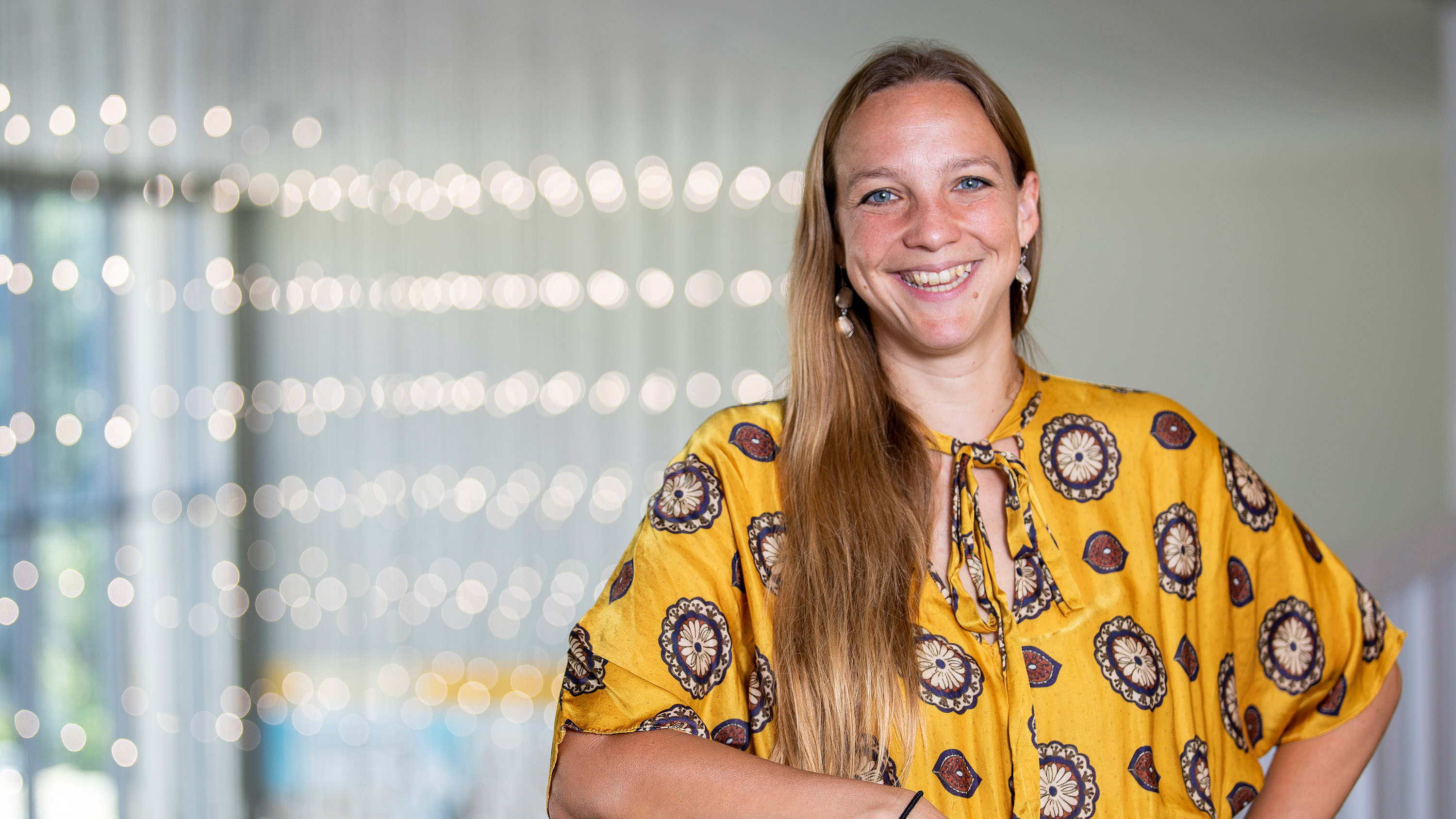A journey into space policy
Mariel Borowitz ’06

In the days of the Apollo program, space policy wasn’t really about rockets, it was about international politics: beating the Soviets to the moon. But in the 21st century, with space now populated by thousands of satellites, telescopes, and other technologies, space policy has become far more complex. So after earning her degree in aerospace engineering, Mariel Borowitz ’06 decided to shift her focus.
“I loved engineering and I loved international affairs, but I didn’t know a lot about what was in the intersection of those two spaces,” says Borowitz, an associate professor in the Sam Nunn School of International Affairs at Georgia Tech. “It’s just a whole different world to see that side of it. What’s the proper role of government? What’s the proper role of private industry, and where is the intersection between them?”
After earning a PhD in public policy at the University of Maryland, Borowitz joined the Georgia Tech faculty, then was detailed to NASA headquarters as a policy analyst for the Science Mission Directorate in 2016. Today, she collaborates with policymakers on space security, open access to Earth satellite data, and space situational awareness, which involves keeping all the satellites now spinning around the Earth out of each other’s way. That requires data sharing among individual nations and various private companies. She testified to Congress about the issue last spring.
“The US military operates the most advanced space surveillance system in the world,” she says. “They generate warnings when two satellites from any country might have a collision, but it’s not naturally something that the military would do. So as that job has been increasing, there’s a push to shift that over to a civil agency. This hearing was trying to get into the details of what does that actually look like.”
In 2017 Borowitz published Open Space: The Global Effort for Open Access to Environmental Satellite Data. “There are more than 35 nations that have owned or operated an Earth observation satellite, and also now a number of commercial entities as well. I look at how do they deal with their data, who do they share it with. It’s so important, because a lot of our understanding of climate change and things happening on a global scale comes from satellite data.”
Space isn’t just for astronauts and engineers anymore. “These are things that affect everyone, but very few people are familiar with the details,” she says. While new space tech gets all the attention, those details of policy are the key to best realizing the promise and potential of space for everyone.
Keep Reading
Most Popular
Large language models can do jaw-dropping things. But nobody knows exactly why.
And that's a problem. Figuring it out is one of the biggest scientific puzzles of our time and a crucial step towards controlling more powerful future models.
How scientists traced a mysterious covid case back to six toilets
When wastewater surveillance turns into a hunt for a single infected individual, the ethics get tricky.
The problem with plug-in hybrids? Their drivers.
Plug-in hybrids are often sold as a transition to EVs, but new data from Europe shows we’re still underestimating the emissions they produce.
Stay connected
Get the latest updates from
MIT Technology Review
Discover special offers, top stories, upcoming events, and more.